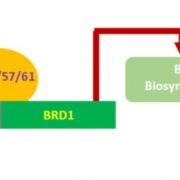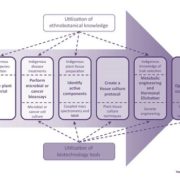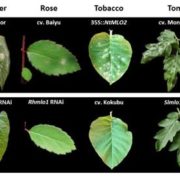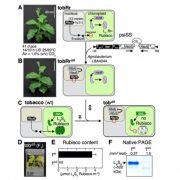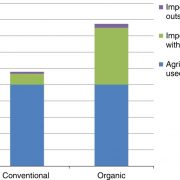A femtomolar-range suicide germination stimulant for the parasitic plant Striga hermonthica (Science)($)
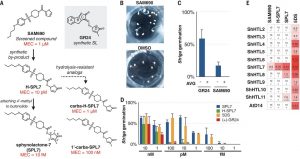 Striga hermonthica (Striga) parasitizes a wide range of crops including sorghum and rice, mainly in sub-Saharan Africa. This parasite decreases crop yields and results in billions of dollars in economic damage. Striga seeds are numerous and remain dormant in the soil until prompted to germinate by the presence of host-generated hormones called strigolactones. Application of these hormones prior to planting can be effective to remove Striga seeds because the parasite is obligate, and thus cannot survive in the absence of a host. However, strigolactones also attract root symbiotic arbuscular mycorrhizal fungi that supply host plants with nutrients. Therefore application prior to planting can still be detrimental to overall plant health. In this paper, Uraguchi et al., have developed a hybrid molecule that can be used at a very low concentration to initiate Striga germination without interfering with strigolactone-dependent events in the host and may potentially give farmers an additional method to protect fields from Striga infestation. The authors say that this strategy might also be applicable for the control additional parasitic weeds such as Orobanche or Phelipanche. (Summary by Katie Rogers) Science 10.1126/science.aau5445
Striga hermonthica (Striga) parasitizes a wide range of crops including sorghum and rice, mainly in sub-Saharan Africa. This parasite decreases crop yields and results in billions of dollars in economic damage. Striga seeds are numerous and remain dormant in the soil until prompted to germinate by the presence of host-generated hormones called strigolactones. Application of these hormones prior to planting can be effective to remove Striga seeds because the parasite is obligate, and thus cannot survive in the absence of a host. However, strigolactones also attract root symbiotic arbuscular mycorrhizal fungi that supply host plants with nutrients. Therefore application prior to planting can still be detrimental to overall plant health. In this paper, Uraguchi et al., have developed a hybrid molecule that can be used at a very low concentration to initiate Striga germination without interfering with strigolactone-dependent events in the host and may potentially give farmers an additional method to protect fields from Striga infestation. The authors say that this strategy might also be applicable for the control additional parasitic weeds such as Orobanche or Phelipanche. (Summary by Katie Rogers) Science 10.1126/science.aau5445


